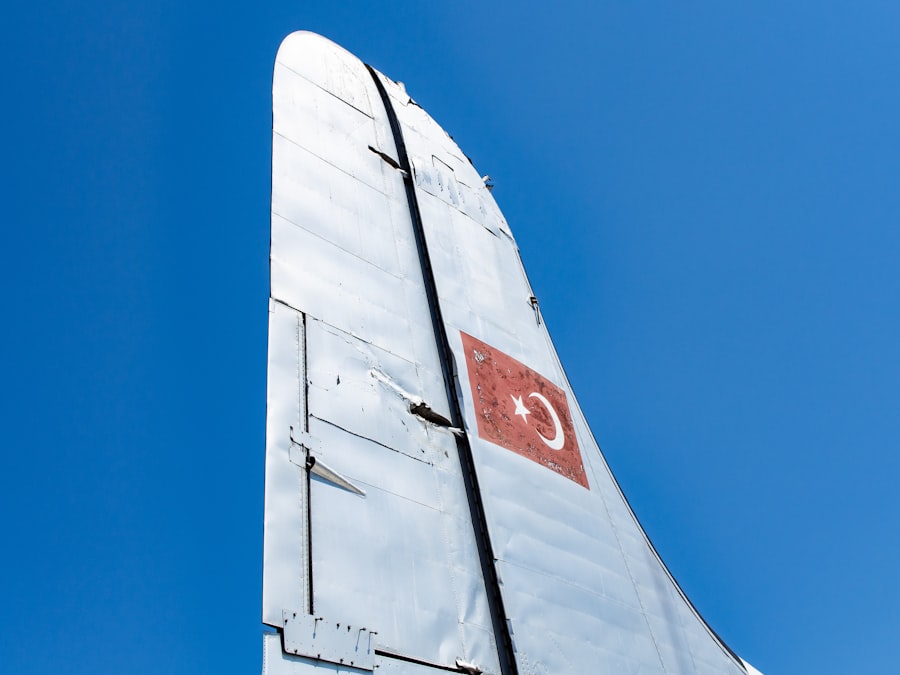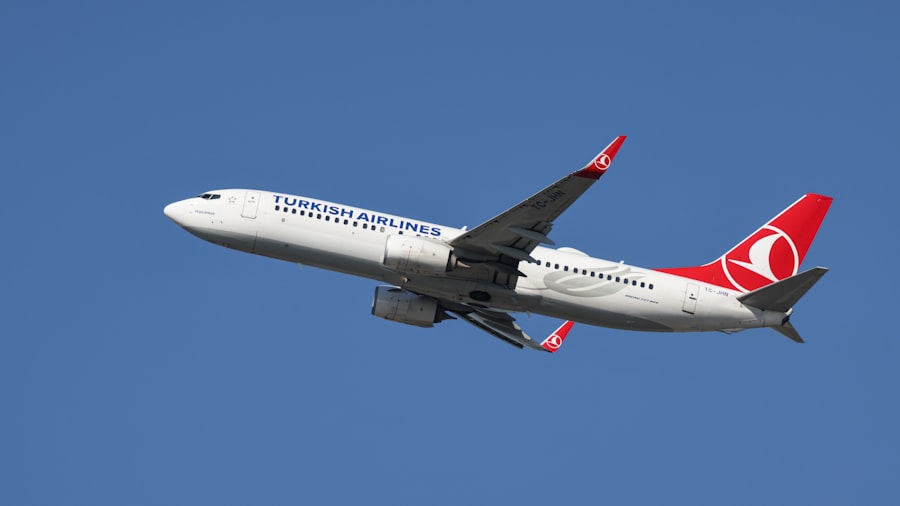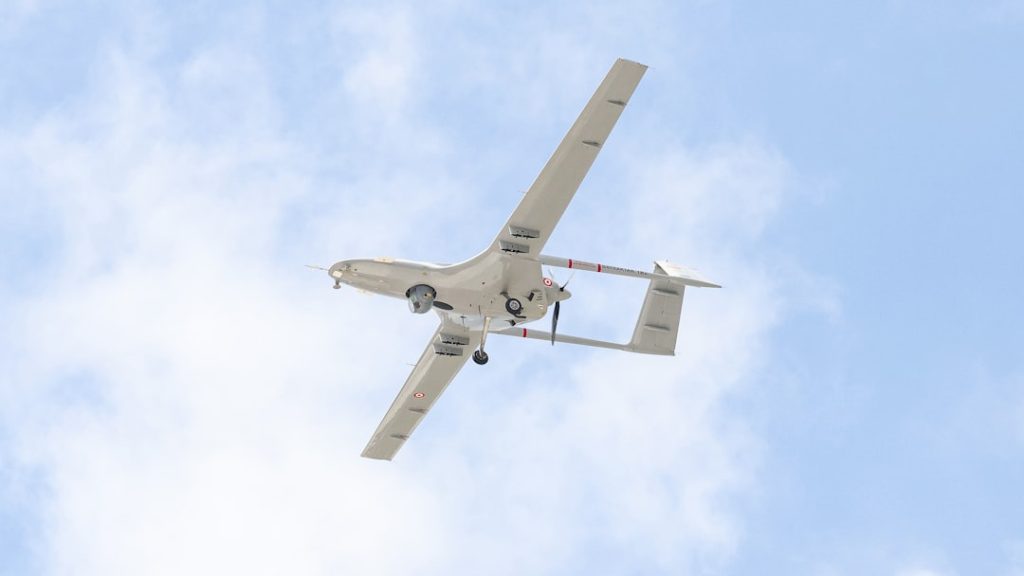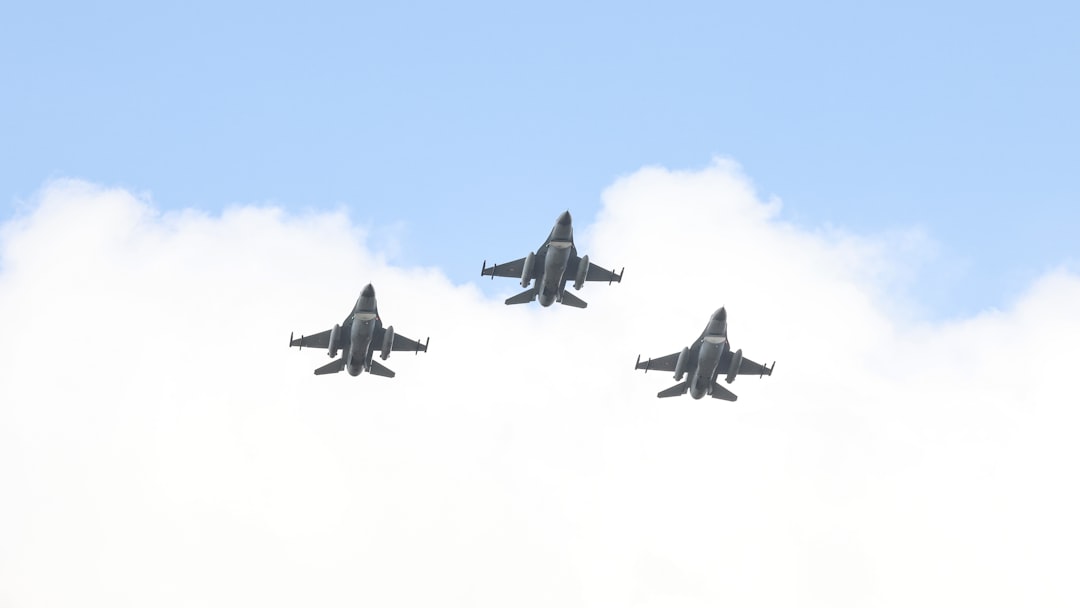The Turkish aerospace industry has emerged as a significant player in the global aerospace sector, characterized by its rapid growth and increasing technological capabilities. This sector encompasses a wide range of activities, including the design, manufacturing, and maintenance of aircraft, spacecraft, and related systems. The strategic importance of aerospace in Turkey is underscored by its contributions to national security, economic development, and technological advancement.
As a member of NATO and a country with a rich history of aviation, Turkey has leveraged its geopolitical position to foster a robust aerospace ecosystem that integrates both military and civilian applications. Turkey’s commitment to developing its aerospace capabilities is evident in its investment in research and development, as well as in the establishment of various institutions dedicated to aerospace education and innovation. The government has recognized the potential of this industry to drive economic growth and has implemented policies to support its expansion.
With a focus on indigenous production and technological self-sufficiency, Turkey aims to reduce its reliance on foreign suppliers while enhancing its competitiveness in the global market. This introduction sets the stage for a deeper exploration of the historical context, key players, technological advancements, and future prospects of the Turkish aerospace industry.
Key Takeaways
- Turkish Aerospace has evolved significantly, becoming a key player in the global aerospace industry.
- Strategic partnerships and collaborations have driven technological advancements and innovation.
- The industry is expanding its market presence internationally, enhancing global competitiveness.
- Challenges such as competition and market dynamics present both risks and growth opportunities.
- Future growth strategies focus on innovation, market expansion, and strengthening global impact.
History and Evolution of Turkish Aerospace Industry
The roots of the Turkish aerospace industry can be traced back to the early 20th century, with the establishment of the Turkish Aeronautical Association in 1925, which aimed to promote aviation in the country. However, it was not until the 1950s that significant strides were made in developing a domestic aerospace sector. The establishment of Turkish Aircraft Industries (TAI) in 1973 marked a pivotal moment, as it began producing components for military aircraft and later expanded into full aircraft manufacturing.
This period saw Turkey collaborating with various international partners, which laid the groundwork for future advancements. The 1980s and 1990s were transformative decades for the Turkish aerospace industry, characterized by increased government support and strategic partnerships with foreign companies. The Turkish government recognized the importance of developing an indigenous defense industry, leading to initiatives such as the National Combat Aircraft Program.
This program aimed to create a domestically produced fighter jet, which would not only enhance national security but also position Turkey as a competitive player in the global defense market. By the early 2000s, Turkey had made significant progress in developing its aerospace capabilities, with companies like TAI and Aselsan emerging as key players in both military and civilian aviation sectors.
Key Players and Partnerships in Turkish Aerospace

The Turkish aerospace landscape is populated by several key players that have significantly contributed to its growth and development. Turkish Aerospace Industries (TAI) stands out as the leading entity, specializing in the design and production of military aircraft, helicopters, and unmanned aerial vehicles (UAVs). TAI has been instrumental in projects such as the T129 ATAK helicopter and the Hürkuş trainer aircraft, showcasing Turkey’s growing capabilities in advanced aviation technology.
Additionally, TAI has engaged in numerous international collaborations, partnering with companies like Boeing and Lockheed Martin to enhance its technological expertise. Another prominent player is Aselsan, a defense electronics company that has expanded its portfolio to include avionics systems for military aircraft. Aselsan’s innovations in radar systems, electronic warfare, and communication technologies have positioned it as a critical partner for both domestic and international aerospace projects.
Furthermore, companies like Roketsan and Baykar Technologies have made significant contributions to the UAV sector, with Baykar’s Bayraktar TB2 drone gaining international acclaim for its effectiveness in various conflict zones. These partnerships and collaborations not only bolster Turkey’s domestic capabilities but also enhance its standing in the global aerospace market.
Technological Advancements and Innovations in Turkish Aerospace
| Year | Project/Innovation | Description | Impact/Metric |
|---|---|---|---|
| 2014 | T129 ATAK Helicopter | Development of an advanced attack helicopter in collaboration with AgustaWestland. | First indigenous attack helicopter; enhanced military capabilities. |
| 2017 | TF-X National Fighter Jet | Initiation of a fifth-generation stealth fighter jet project. | Projected to replace aging fleet; boost domestic aerospace industry. |
| 2018 | ANKA UAV | Development of a medium-altitude long-endurance unmanned aerial vehicle. | Operational deployment in surveillance and reconnaissance missions. |
| 2020 | Hürjet Advanced Jet Trainer | Design and development of a supersonic jet trainer and light attack aircraft. | Enhances pilot training and light combat capabilities. |
| 2022 | National Satellite Launch System | Development of indigenous satellite launch capabilities. | Reduces dependency on foreign launch services; strengthens space tech. |
| 2023 | TEI PD170 Engine | Development of a domestically produced turboprop engine for UAVs and light aircraft. | Increases self-reliance in aerospace propulsion technology. |
Technological advancements have been at the forefront of Turkey’s aerospace evolution, driven by a commitment to innovation and research. The development of indigenous UAVs has been one of the most notable achievements in recent years. The Bayraktar TB2 drone exemplifies this progress; it has been utilized effectively in various military operations and has garnered attention for its advanced capabilities, including real-time intelligence gathering and precision strike capabilities.
The success of such platforms has not only enhanced Turkey’s military capabilities but has also positioned it as a leading exporter of UAV technology. In addition to UAVs, Turkey has made significant strides in developing advanced avionics systems and composite materials for aircraft manufacturing. The integration of cutting-edge technologies such as artificial intelligence (AI) and machine learning into aerospace applications is becoming increasingly prevalent.
For instance, TAI is actively exploring AI-driven solutions for aircraft maintenance and operational efficiency. Moreover, Turkey’s investment in research institutions like the Turkish Technology Team Foundation (T3) aims to foster innovation by supporting startups and research initiatives focused on aerospace technologies. These advancements reflect Turkey’s ambition to not only keep pace with global trends but also to set new standards in aerospace innovation.
Market Expansion and Global Presence of Turkish Aerospace
The Turkish aerospace industry has made significant strides in expanding its market presence on a global scale. With an increasing number of countries seeking advanced military technologies, Turkey has positioned itself as a reliable supplier of defense systems. The export of UAVs, particularly the Bayraktar TB2, has gained traction in various regions, including Europe, Africa, and the Middle East.
Countries such as Ukraine have turned to Turkish drones for their military needs, highlighting Turkey’s ability to meet international demand for advanced aerial platforms. Furthermore, Turkey’s participation in international defense exhibitions and trade shows has facilitated networking opportunities with potential clients and partners worldwide. Events like the International Defense Industry Fair (IDEF) serve as platforms for showcasing Turkey’s aerospace capabilities while fostering collaborations with foreign companies.
The government’s proactive approach to promoting exports through incentives and support programs has further bolstered Turkey’s position in the global aerospace market. As a result, Turkish aerospace companies are increasingly recognized for their quality products and innovative solutions.
Challenges and Opportunities for Turkish Aerospace in the Global Market

Despite its impressive growth trajectory, the Turkish aerospace industry faces several challenges that could impact its future prospects. One significant hurdle is the geopolitical landscape surrounding Turkey. Regional tensions and political instability can affect defense contracts and international collaborations.
Additionally, competition from established aerospace powers such as the United States and European nations poses a challenge for Turkish companies seeking to expand their market share. These competitors often have well-established supply chains and extensive experience in international markets. However, these challenges also present opportunities for growth and innovation within the Turkish aerospace sector.
The increasing demand for unmanned systems globally offers a unique opportunity for Turkey to leverage its expertise in UAV technology. Furthermore, as countries seek to diversify their defense procurement sources away from traditional suppliers due to geopolitical considerations or trade restrictions, Turkey can position itself as an alternative provider of advanced military technologies. By focusing on research and development while fostering strategic partnerships with emerging markets, Turkey can navigate these challenges effectively while capitalizing on new opportunities.
Future Prospects and Growth Strategies for Turkish Aerospace
Looking ahead, the future prospects for the Turkish aerospace industry appear promising, driven by strategic initiatives aimed at enhancing competitiveness and innovation. One key growth strategy involves increasing investment in research and development to foster technological advancements across various domains within aerospace. By prioritizing R&D funding, Turkey can accelerate the development of next-generation aircraft systems, advanced materials, and cutting-edge avionics technologies.
Moreover, expanding international collaborations will be crucial for Turkey’s continued growth in the aerospace sector. By forging partnerships with foreign companies and research institutions, Turkey can gain access to new markets while benefiting from shared expertise and resources. Additionally, focusing on sustainability initiatives within aerospace manufacturing processes can enhance Turkey’s appeal as an environmentally conscious supplier in an increasingly eco-aware global market.
Turkish Aerospace’s Impact on the Global Market
The impact of the Turkish aerospace industry on the global market is becoming increasingly pronounced as it continues to evolve into a formidable player within this competitive landscape. With its focus on indigenous production capabilities, technological innovation, and strategic partnerships, Turkey is well-positioned to make significant contributions to both military and civilian aviation sectors worldwide. As it navigates challenges while seizing opportunities for growth, the Turkish aerospace industry is poised not only to enhance national security but also to play a vital role in shaping the future of global aerospace dynamics.




